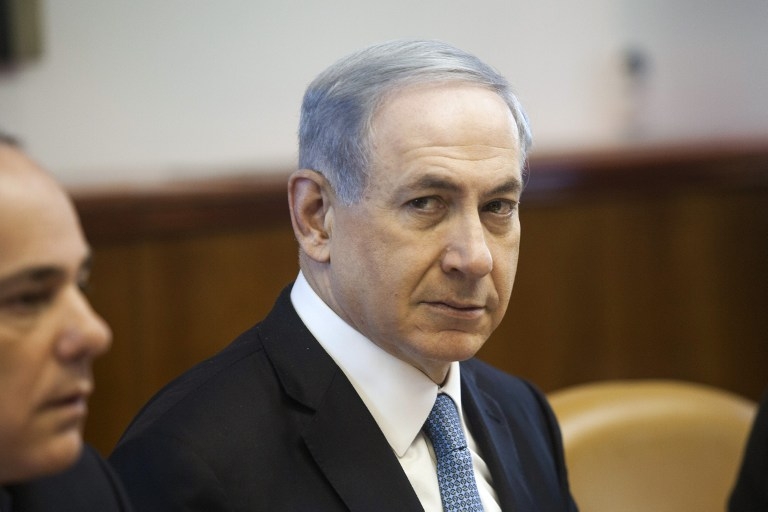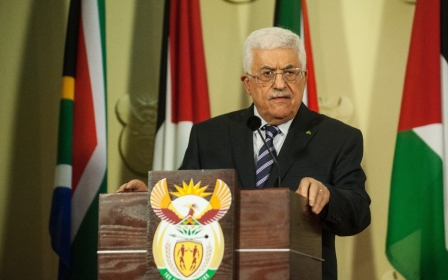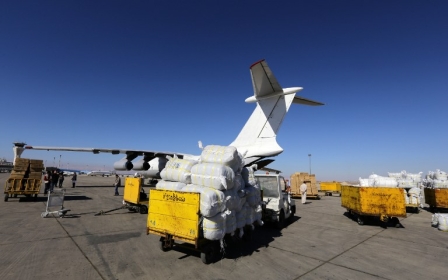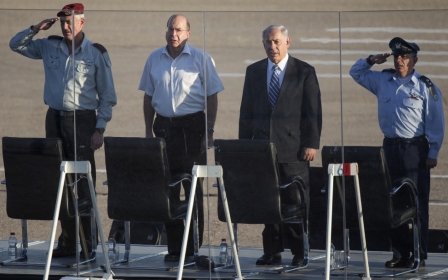Israeli opposition accuse PM of attacking Syria for political gain

Israeli opposition figures accused Prime Minister Benjamin Netanyahu of inaugurating his electoral campaign by bombing Damascus and expressed that he seeks to set the Middle East ablaze to guarantee his victory in the upcoming elections, Israeli media reported.
Israel's Channel 2 quoted lawmaker Yifat Kariv of the centrist Yesh Atid party as saying that Netanyahu did not succeed in forming an alternative coalition to the one expected to be dissolved on Monday, so he decided to put the Middle East on fire to inaugurate his electoral campaign.
MK Issawi Frej of the leftist Meretz party, meanwhile, said that Netanyahu always tries to blame his failure on foreign issues. When asked about his performance in government and the rising cost of living Netanyahu blames Iran, when asked about the health care system, he blames Hamas, he added.
Lawmaker Moshe Mizrahi of the centre-left Labor Party, for his part, said that issues tend to overlap before elections, hoped that no one goes "crazy" before the election date.
In response, sources close to Netanyahu have described the opposition's statements as "rude," Channel 2 said.
The Israeli military attacks are vital to Israeli's security and have never been a tool for campaigns, the sources were quoted as saying by the Israeli broadcaster.
Israeli officials have neither confirmed, nor denied responsibility for Sunday's bombings.
Haaretz correspondent Amos Harel wrote on Monday that it was unlikely that a strike on Damascus backed only by Netanyahu would have been possible without the media's knowledge.
"It’s hard to imagine that Netanyahu would drag the military into making an offensive move against its will without something from the argument leaking to the media," wrote Harel.
The key question, Harel noted, is how Hezbollah will respond. Since early this year, when Israel reportedly struck a convoy near the Syria-Lebanon border thought to be transporting weapons to Hezbollah. The group declared after the attack that any move Israel makes into Lebanese territory will draw a response.
"The group has been exhibiting greater self-confidence in provoking Israel," he wrote. "The question is whether the fact that yesterday’s [Sunday] bombings were on the Syrian side of the border is enough of a reason to refrain from responding."
Jeff White, a defense fellow at the Washington Institute for Near East Policy, told the Washington Post that the strike fit an Israeli pattern of hitting shipments going to Hezbollah and is less about Syria's war and more about "the Israeli-Hezbollah equation".
Syria's state-run news agency on Sunday reported that Israeli warplanes had targeted two areas in the countryside of Damascus, near the city's international airport.
The Syrian government has not reported any casualties from the alleged strikes yet.
Last Tuesday, Netanyahu called for holding early elections, citing difficulties leading the state with his current government.
The move came after Netanyahu dismissed two leading members of his cabinet – Justice Minister Tzipi Livni and Finance Minister Yair Lapid – prompting the collapse of his coalition government.
New MEE newsletter: Jerusalem Dispatch
Sign up to get the latest insights and analysis on Israel-Palestine, alongside Turkey Unpacked and other MEE newsletters
Middle East Eye delivers independent and unrivalled coverage and analysis of the Middle East, North Africa and beyond. To learn more about republishing this content and the associated fees, please fill out this form. More about MEE can be found here.




